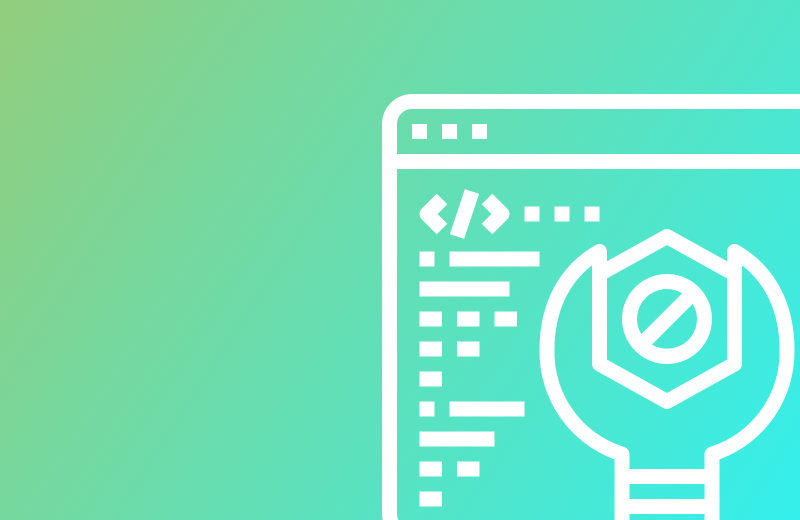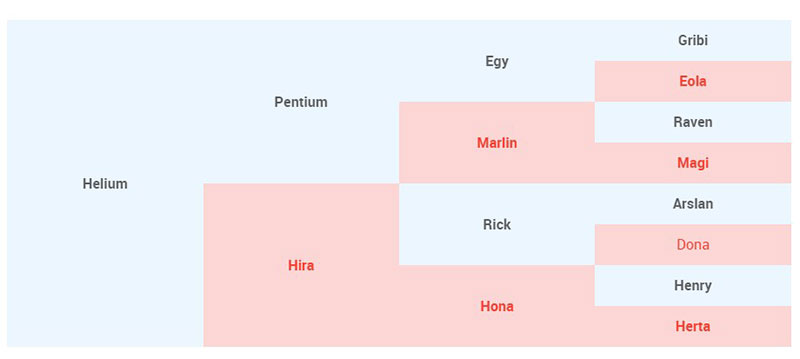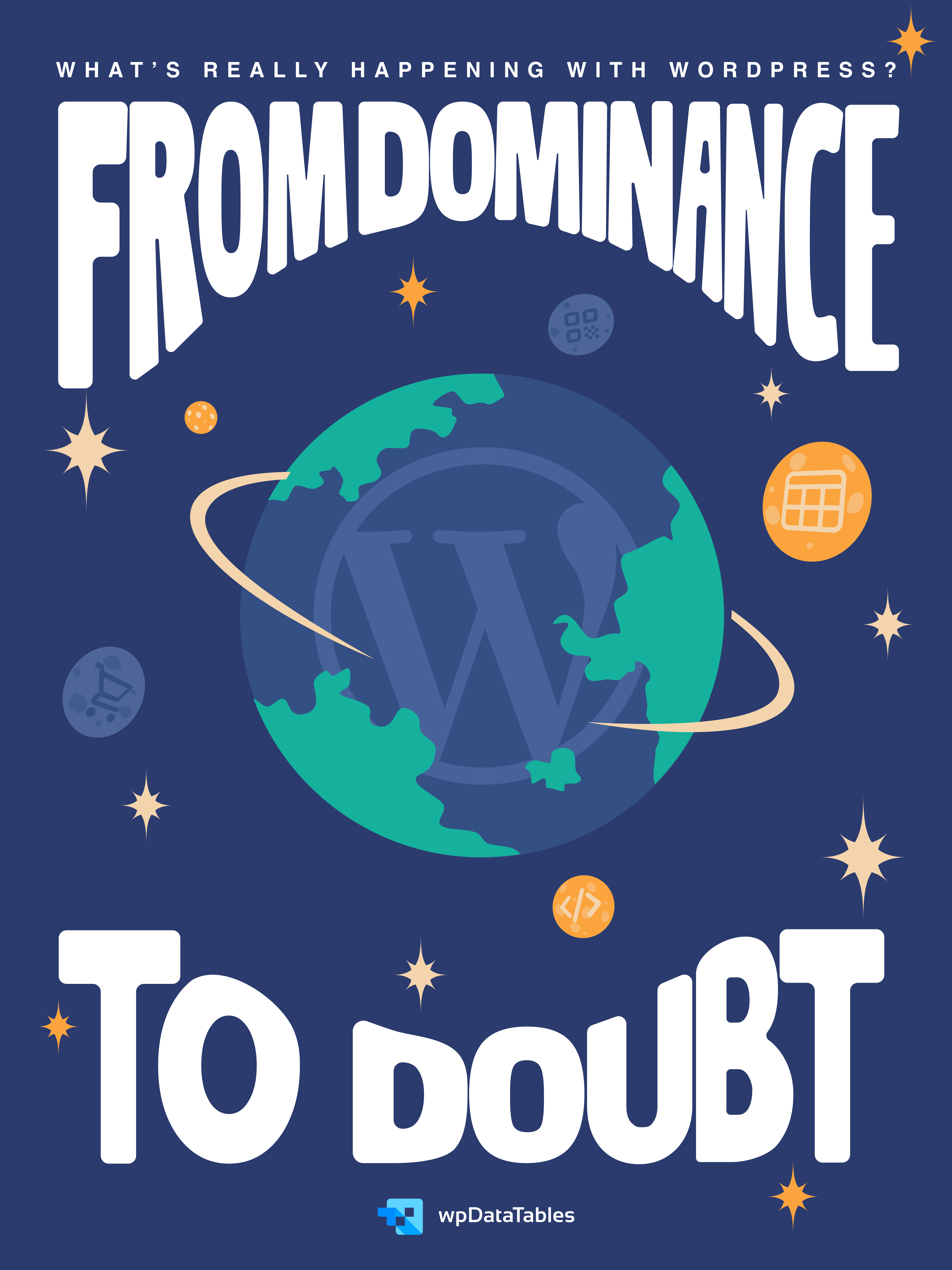Just like with a car or a home, every website needs to be maintained over time. There are some initial costs to build a website, but that is not all. It’s not a one-time job and it takes dedication to keep a site up and running for a long time, while also making it attract more and more visitors. Maintaining your site in good condition is not easy, either. There are a ton of aspects that you have to take into consideration, including the general website maintenance cost while also managing software-related spends.
The Internet is changing at all times – it doesn’t rest. Trends in marketing and technology come and go in the blink of an eye, and there is no wonder why webmasters make changes to their websites so often. The trends are pushed and pulled by consumers, whose expectations ultimately dictate what’s going to happen with a website. Without users visiting your site, its purpose is lost, and no matter how much money and effort you’ve invested into it, if it is not maintained, the site’s usefulness has come to an end.
This article created by our team at wpDataTables will be helpful for those who want to invest their resources in WordPress website maintenance but aren’t sure exactly how to do so. The maintenance benefits and tips remain rather general and fit all case scenarios. Keep reading to find out more.
Table of Contents
What Are Framework Updates and Why Do You Need Them?
As a website platform, WordPress – like any other software product – comes in versions. These versions include different characteristics and features. From one version to the next, the website will change for the better. New features will be implemented and security flaws will be fixed, and so on. By not upgrading the website platform software, your site may easily become the target of hackers.
Updating WordPress is an essential part of the web maintenance process and you shouldn’t skip it. Some web hosting services handle updates on their own, without requiring you to do anything. Choose this method if you’re not good with technology and making technical changes. Doing it yourself is not too complicated, though, as long as you read tutorials and stay informed about website maintenance.
Why Do You Need to Invest in Website Maintenance in The First Place?
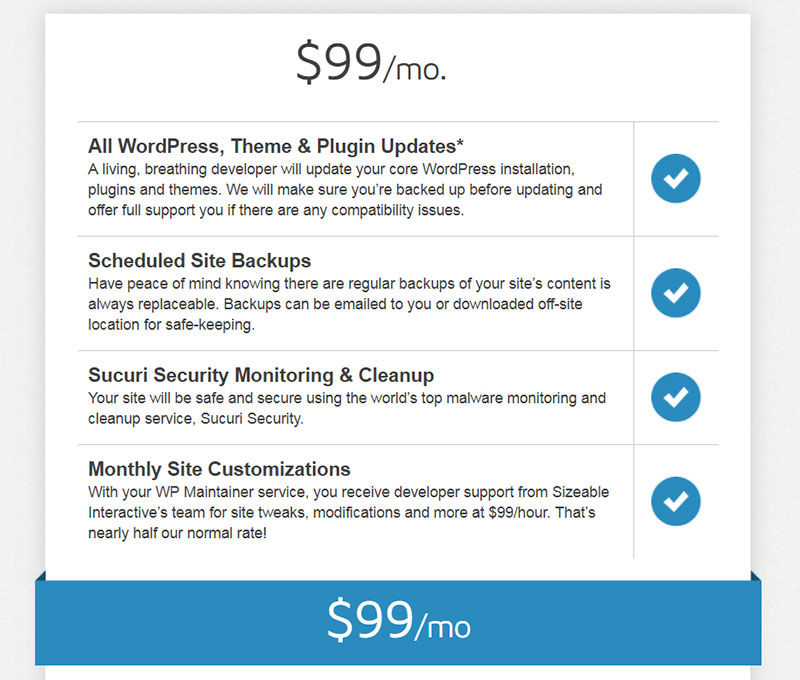
If you’re not sure why website maintenance is important or how much it costs to maintain a website, continue reading. Running a website requires paying attention to certain aspects. When you’re not carefully assessing the website and the aspects that can be improved, the website might become slow, full of errors, or otherwise targeted by cybercriminals.
In addition to hacking, your website will become difficult to navigate and unusable, and you might notice how you lose the number of visitors who used to visit your site. To make sure that doesn’t happen, you should apply quality assurance services monthly. For WordPress sites, this is mandatory to keep up with plugin or theme updates, as well as the CMS updates. During quality assurance, focus on the search functions of your site, the way plugins work, load times, and errors.
The checkout process is also paramount in the case of eCommerce websites. See if the website works properly after running theme or plugins updates and revert the changes in case they don’t. Keep in mind that the cost of website development and maintenance depends on the size and type of website you own. The situation may differ from one user to another and you won’t be able to figure out the web maintenance costs without performing regular quality assurances.
Without these monthly assurances, your website might develop problems to the point they can no longer be solved in a timely manner, with reduced financial resources. If left unsolved, some problems might affect the website to the extent to which it needs to be closed and republished from scratch. Moreover, if hackers get a grip on your site, sensitive information will be leaked, and that could wreak havoc on your work. When you own a website that is already pretty big and has a strong user base, it would be best to hire people to take care of security and website maintenance. With an IT department, failure is very unlikely.
What Benefits Does Monthly Website Maintenance Have?
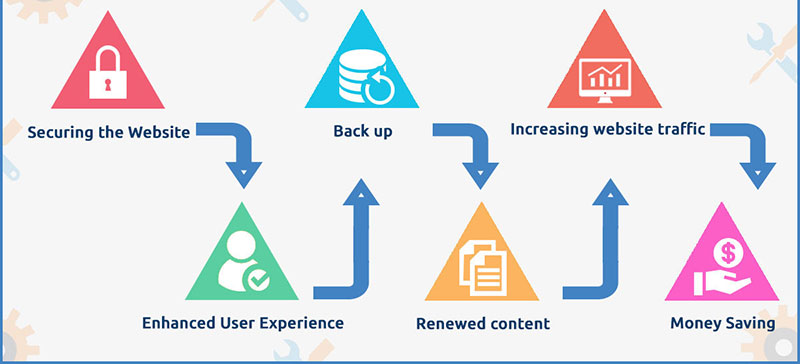
Here are some of the benefits of web maintenance:
- The user experience gets visibly improved – you will start turning more users into leads by improving how they feel when they access your site; your conversion rate should go through the roof when done correctly and consistently.
- Security gets better – by maintaining the website in a good state, you know that it is also secure and gains the trust of users.
- You save money – even though it seems like you only spend money when you see the final website maintenance cost, in the long, run you are going to save a lot of money because you avert issues that could turn into unsolvable problems.
Should You Hire a Developer or Do It Yourself?
If you were to think about how you are going to maintain your website in good condition, what would you choose between outsourcing the job or doing it yourself? This chapter will make a clear comparison between each option, which should help you make a final decision in the end. Here are the ins and outs of DIYing and outsourcing when it comes to web maintenance:
Costs when DIYing

The website maintenance cost when doing everything yourself isn’t very high. You will have to back up, upgrade, and secure your website regularly, however, which does take some time. You also need to have some tech knowledge in order to fix broken links and update outdated lines of code, while choosing the appropriate plugins and themes. Normally, you need to deal with:
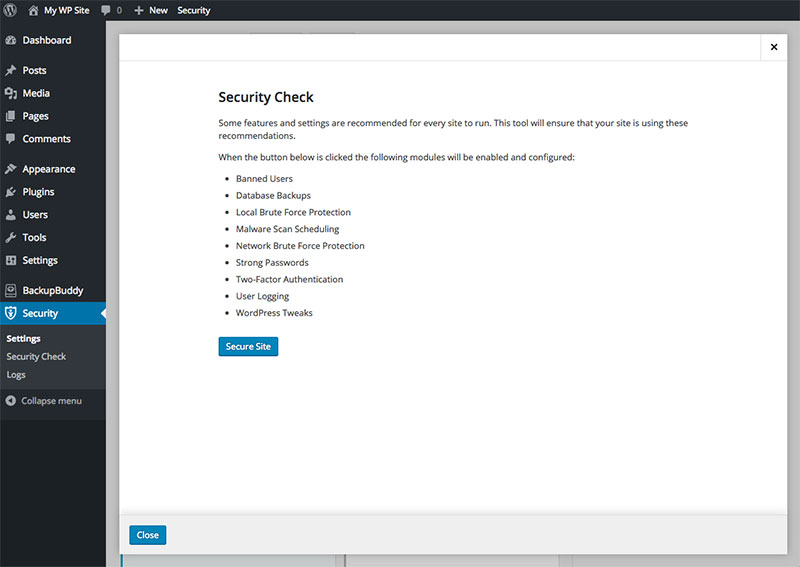
- Monitoring security aspects of your site
- Run security cleanups every now and then
- Monitor the uptime of your site
- Invest in performance and optimization audits
- Create backups and know how to restore a website if needed
- Perform software updates
- Perform website content cleanups
- Run a general website audit per year
- Make the necessary edits to improve the website usability
- Create reports based on all the information you’ve gathered and the changes you’ve made
To make this entire process more efficient and less time-consuming, you can use a dedicated WordPress maintenance tool like WP Umbrella. It allows you to manage all your WordPress maintenance tasks from a single, user-friendly dashboard. Whether you’re working with one or multiple sites, WP Umbrella simplifies everything for just 1,99 € per site per month.
Costs when Outsourcing

On the other hand, outsourcing and working with an IT company can cost more. The website maintenance cost can be pretty high, depending on what you require from the team who will be supporting your site. They will deal with all of the aspects mentioned in the case of the DIY approach. A team will handle how secure the site is, create the necessary backups, deal with restoring the website, and more. When an IT team performs changes on a website, expect it to be down for a short while.
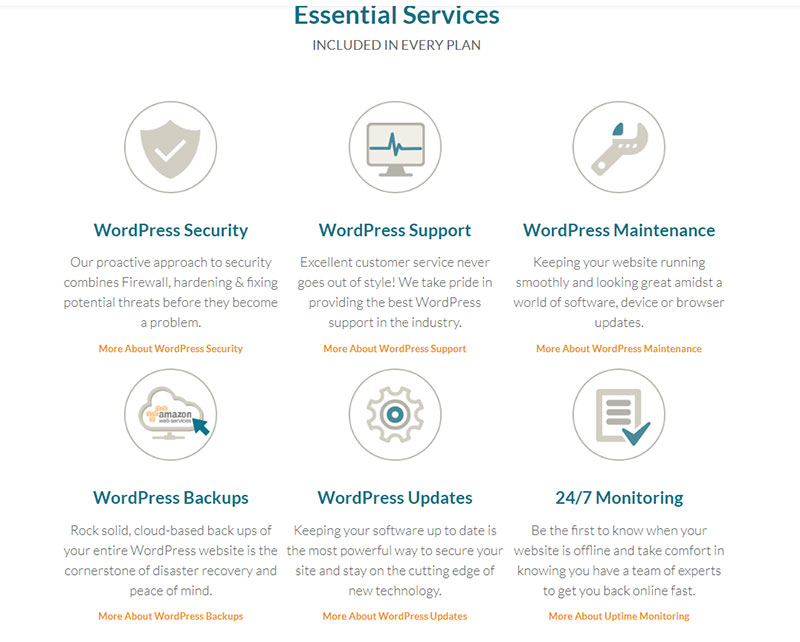
The website maintenance cost when outsourcing can range anywhere between $15 and $50 per month. It all depends on what you expect from the team and what changes you’d like to have done to your site. Simple websites will require less work, thus costing less to maintain them in good condition. Complex websites or professional online stores might involve more work, thus the price will be proportionately higher.
Other costs involved
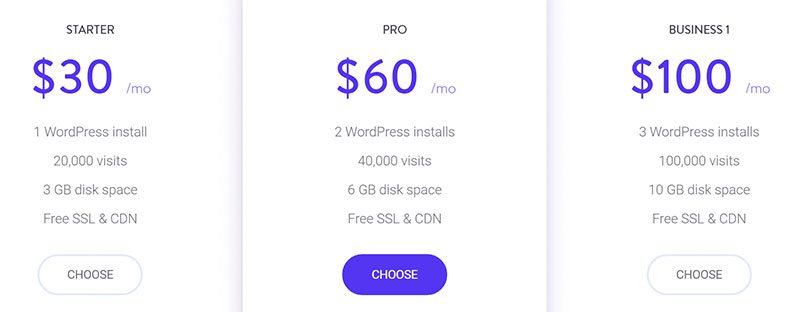
Don’t forget about hosting costs, which are recurrent and unavoidable. Again, the price can differ based on how complex your website is and what features you want to be included, as well as how much traffic the site receives. Some web hosting companies charge more than $100 per month, but they offer non-stop support and features that are not generally offered with a $15 per month hosting service. You should also consider backup services that are paid separately. They can run and store backups of your site for as low as $5 per month.
FAQ on WordPress Website Maintenance Costs
How often do I really need to update WordPress?
Well, here’s the thing. WordPress updates are kind of a big deal. They ensure that your site remains secure, and you’re getting the latest features.
Think of it like your phone updates. Do you keep pushing ‘remind me tomorrow’? Sure, but for how long? It’s generally best to update as soon as you can. And always backup before doing so. This falls into the WordPress backup services territory.
Is the monthly maintenance fee for WordPress really worth it?
Totally get where you’re coming from. Imagine this: Your car needs servicing, right? Similarly, your site needs its monthly website maintenance fee to stay in prime shape.
A little cash now can save loads down the line. Like, avoiding website downtime or costly emergency site restoration. So, yeah, it’s definitely worth considering.
What’s this about plugin updates and compatibility?
Ah, the good ol’ plugin updates. Picture plugins as apps for your site. Sometimes they play nice; other times, not so much.
As WordPress evolves, plugins need to be compatible with those changes. Updating them is essential not just for features but for security too. Keep an eye on them, and remember, theme updates go hand in hand with plugins.
Does site optimization really affect maintenance costs?
Short answer? Yes. Think of site optimization and speed as your website’s fitness level. The fitter it is, the fewer issues you’ll have.
Plus, an optimized site can save on potential costs, like those related to performance monitoring or even CDN fees. Just like keeping yourself healthy reduces medical bills.
What’s up with SSL certificate renewals?
Here’s a fun one. SSL certificate renewal is like renewing your driver’s license. Your site needs it to prove it’s safe for visitors.
Without it, browsers might warn folks your site isn’t secure. And trust me, nobody likes those warning signs. So yes, renewing it might be an added WordPress maintenance cost, but it’s crucial.
How big of a deal is database maintenance for WordPress?
Big. Imagine your database as the library of your site. Over time, database maintenance keeps that library tidy and efficient. Without it? Things can get messy, slow, and could lead to bigger issues. It’s like spring cleaning; it’s tedious but totally necessary.
Why do I need to check for broken links?
Ah, broken link checks. It’s like going through your wardrobe and finding clothes that don’t fit anymore. Broken links can harm your site’s reputation and SEO. Plus, it’s a bad look for visitors. Ever clicked on something you wanted to see, and it’s a dead end? Annoying, right?
What’s the real difference between free and premium plugin costs?
Oh man, premium plugin renewal costs versus free ones. Free plugins are great, don’t get me wrong. But the premium ones? They often come with extra features, support, and more regular updates. It’s like comparing a basic phone to a smartphone. Both do the job, but one’s got those extra bells and whistles.
Should I bother with SEO upkeep for my WordPress site?
Short and sweet: Yes! SEO upkeep for WordPress isn’t just about ranking high on Google. It affects user experience, site performance, and even conversion rates. Think of SEO as the compass guiding visitors to your website treasure. Keeping that compass accurate? Essential.
Is having backup storage really that crucial?
Put simply: Absolutely. Think of backup storage costs as investing in a safety net. If something goes haywire (and trust me, in the digital world, sometimes it does), backups are your saviors. It’s like having an extra parachute when skydiving. Hope you never need it, but super glad if you do.
In summary
Web maintenance should be included on any website owner’s budgeting list. Keeping a site secured and comfortable to use are two goals that all people have when they invest time, effort, and money into a site. Considering how low the website maintenance cost can get, it’s a small price to pay for success.
If you enjoyed reading this article on WordPress website maintenance cost, you should check out this one about how to change font color in WordPress.
We also wrote about a few related subjects like how to password protect WordPress site, how to disable comments in WordPress, WordPress stuck in maintenance mode, WordPress multisite, WordPress header, WordPress dashboard login and WordPress tagline.
